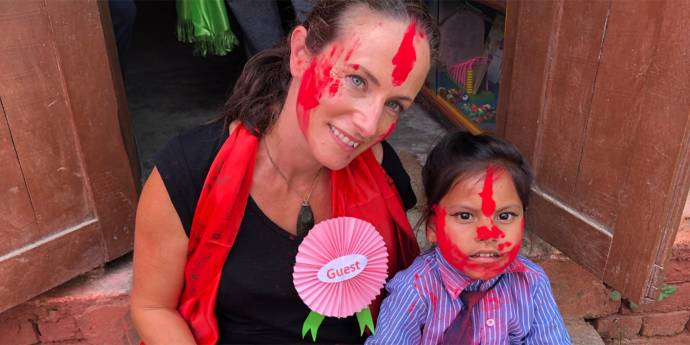Zoe Dryden: Lifting lives through governance
What is common between helping executives develop ‘humility-based leadership’ and enhancing the quality of life in rural communities in Nepal?

Both are Zoe Dryden’s initiatives. The Nelson-based mother of two was an early achiever in the world of business. She has since turned her sights to governance eager to continue to make a positive difference in the lives of people. We recently had the chance to chat with Zoe and she shared with us her governance story.
Tell us a little bit more about yourself
I was born and raised in Wellington but have lived, worked and volunteered in many countries including in the UK, Nepal, Peru, Australia and USA. I started my first business when I was 21 — The International Rugby Academy, and at 23 I was managing director and co-owner of a container depot business spanning 14 locations and 300 employees. I have two young daughters. I support my partner in our tourism business in the Abel Tasman National Park, Abel Tasman Kayaks. I am a professional leadership coach supporting CEOs and senior executives, a yoga teacher and am actively involved in the health and wellbeing sectors
Tell us about the boards you are a part of
Nea Zoe Ltd (Second Base) provides leadership support to executives, primarily in the behavioural and personal development support space. This programme started with a flagship, two-week experience in Nepal called ‘humility-based’ leadership development course, which was recognised as a finalist for best international start up at the Stevie awards in USA. This programme has had attendees from all over the world and has been described as ‘exceptionally life changing’. Second Base also offers private workshops and customised facilitations. Our clients include British Gas, Fonterra, TR Group and many others.
FACE Nepal is a not-for-profit I founded 14 years ago. I am a chair of the New Zealand board and a board member of the international governance group. We provide education, child sponsorships, and volunteering opportunities to enhance the living standards of rural communities and bridge social and economic barriers. We have built over 14 learning centres, provided water and septic systems to many families, and we currently sponsor 60+ children and 30+ volunteers a year. We have been featured by the BBC and our local managing director recently won a ‘Man of the Year’ award in Nepal for his contribution to community development and education.
What skills do you think are important for directors to have given the changing context of governance?
I think it’s essential to have vision and an interest in humanity. I think it’s also important to have a strong sense of guardianship for our roles and what we represent in them.
What do you think is the biggest challenge for directors?
Navigating through divergent viewpoints and competing priorities, seeing the bigger picture and aligning what we do as an organisation to that big picture.
What are you passionate about outside your governance work?
First of all my children. Second, I love to know what people are creating and contributing, how they are doing it and how I can contribute towards this.
What do you enjoy most about being a member of IoD?
The exposure to a network of people with similar goals and being with people who support and encourage each other.
Why are you interested in governance training? What particular IoD courses did you find really helpful? Why?
I recently decided to pursue governance as a fulltime career and, like any position, training is a helpful first step. It feels to me like the timing is right for people like me to step-up and contribute, especially with the huge demand for diversity and inclusion. I have quite an unconventional background, with the combination of my social and corporate skills plus my private business background. And these are valuable for governance roles.
I found IoD’s Governance Essentials course extremely helpful. It was a particularly eye-opening experience and I would recommend this to those starting out in their governance career. In this changing climate of governance, you cannot afford to miss or outsource business essentials to others and not know anything about it yourself.
What do you think is the value of being a Chartered Member of the Institute?
It’s a recognition that you have achieved a certain foundational skill level to be in a governance role.
Who inspires you?
Many people do. For example Malala Yousafzai and Nelson Mandela. People who step up, who harness their potential and try to make a positive difference with it.
What’s the best advice you’ve been given as a director?
Be open to mentorship. As an experienced business owner, coach and facilitator, it never occurred to me to have a mentor but this helped ensure my continued growth and development in governance.